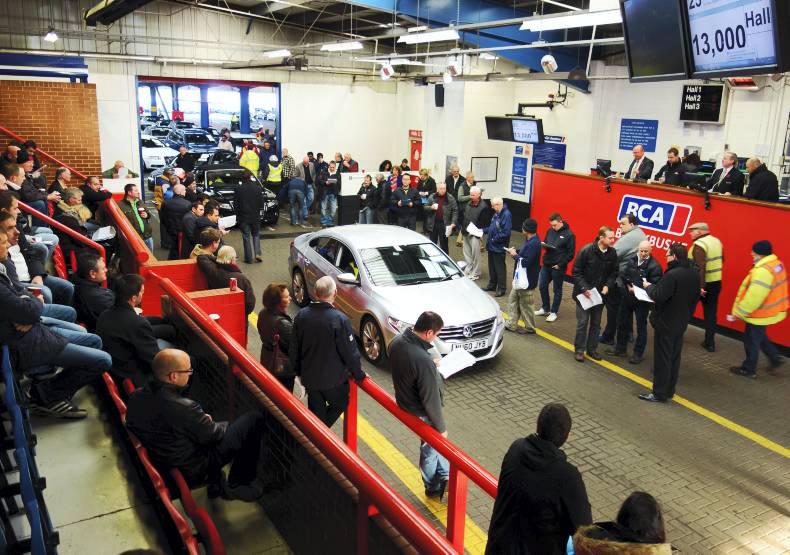There have been warnings over recent weeks that the vote to leave the EU would impact car sales and car manufacturing in what is Europe's second-biggest car market after Germany.
The British car manufacturing industry is nowadays mostly owned by foreign companies, including Nissan, Toyota and Honda, all of which all have car factories in England. Over 55% of all cars built in Britain in 2015 were exported to EU countries.
Nissan produces 475,000 new cars annually at Sunderland, while Toyota produces 190,000 cars at Burnaston in Derbyshire and Honda produces 140,00 cars at Swindon near London.
Prior to the vote, both Nissan and Toyota had warned that Brexit could impact future investments in the country. Share prices for Honda, Nissan and Toyota all dropped on the morning after the result was released. What was surprising was that the Sunderland region in northern England, where Nissan has its huge operations, was among the constituencies that voted strongly for the EU exit.
Drop in share prices and profit hits
Indian owned Jaguar Land Rover, which is part of the Tata group and produces 500,000 cars in Britain, had initially been hit with a 12% drop in share prices following news of the exit vote.
Prior to the vote Jaguar Land Rover said that its profits could take a hit of £1bn per year if Britain votes to leave the European Union. This was estimated to arise from a 10% levy on vehicles being exported to Europe and 4% imports of components for the production of vehicles.
The Government must now maintain economic stability and secure a deal with the EU which safeguards UK automotive interests
A period of uncertainty
BMW, which builds Mini and Rolls-Royce cars in Britain, warned of a “period of uncertainty”.
The company said that it had no immediate change to its UK operations. It said in a statement that many of the conditions for supplying the European market will now have to be re-negotiated.
"We cannot say what this means for our UK operations until those future regulatory and legislative arrangements are agreed," the German car maker said.
UK luxury sports-car company Aston Martin has urged the British government to secure tariff-free access to EU markets. It believes that a weaker pound should partially offset the increased instability.
The big question for car companies revolves around the big unknown issue of the kind of trade deals that the Britain can negotiate with the EU. Currently, exports from Britain to the EU are free of tariffs and duties. Toyota had warned its employees that Britain’s withdrawal from the EU may lead to levies of as much as 10% on the cars it builds in Britain.
A vital part of the UK economy
The motor industry is a vital part of the UK economy, accounting for more than £69.5bn turnover and 11.8% of total UK export of goods.
Mike Hawes, chief executive of British Society of Motor Manufacturers and Traders (SMMT), said, “The Government must now maintain economic stability and secure a deal with the EU which safeguards UK automotive interests. This includes securing tariff-free access to European and other global markets, ensuring we can recruit talent from the EU and the rest of the world and making the UK the most competitive place in Europe for automotive investment.”
The French based PSA Group which produces Citroen and Peugeot car and van brands said it was looking at changes to its UK pricing as markets react to Brexit, with the pound falling to new lows.
PSA indicated it would likely need to raise prices to defend the profitability of its sales in the country.
The British market is the biggest single export market for German car makers, according to VDA, the country's auto-industry association.
VDMA wants Europe's politicians to keep tariff-free trade between the EU and the UK. Half of Britain’s 2.6m annual new-car sales are built by German-owned companies. German car companies have 100 manufacturing sites in Britain.
Higher new car prices
For Irish car buyers, the British move to leave the EU will almost certainly mean higher new car prices as sterling stays low relative to the euro. For car companies operating from a British base, with Irish subsidiaries, the situation could be more complex, ultimately adding to the cost of doing business, and also contributing to pushing up Irish new car prices.
For those willing to buy a used car in the British market, this might be the time to move, as sterling remains weak against the euro. It is expected that there will be a surge in used car imports from Britain which could have the knock-on effect of reducing the prices for used cars here in Ireland.
The fall in used car values may have a greater impact on car dealers and importers who have underwritten guaranteed minimum future values (GMFV) on thousands of PCP deals over the past two years. This could result in some cars owners facing a situation of negative equity to be funded by the car buyer.
Read more
Full coverage: Brexit
There have been warnings over recent weeks that the vote to leave the EU would impact car sales and car manufacturing in what is Europe's second-biggest car market after Germany.
The British car manufacturing industry is nowadays mostly owned by foreign companies, including Nissan, Toyota and Honda, all of which all have car factories in England. Over 55% of all cars built in Britain in 2015 were exported to EU countries.
Nissan produces 475,000 new cars annually at Sunderland, while Toyota produces 190,000 cars at Burnaston in Derbyshire and Honda produces 140,00 cars at Swindon near London.
Prior to the vote, both Nissan and Toyota had warned that Brexit could impact future investments in the country. Share prices for Honda, Nissan and Toyota all dropped on the morning after the result was released. What was surprising was that the Sunderland region in northern England, where Nissan has its huge operations, was among the constituencies that voted strongly for the EU exit.
Drop in share prices and profit hits
Indian owned Jaguar Land Rover, which is part of the Tata group and produces 500,000 cars in Britain, had initially been hit with a 12% drop in share prices following news of the exit vote.
Prior to the vote Jaguar Land Rover said that its profits could take a hit of £1bn per year if Britain votes to leave the European Union. This was estimated to arise from a 10% levy on vehicles being exported to Europe and 4% imports of components for the production of vehicles.
The Government must now maintain economic stability and secure a deal with the EU which safeguards UK automotive interests
A period of uncertainty
BMW, which builds Mini and Rolls-Royce cars in Britain, warned of a “period of uncertainty”.
The company said that it had no immediate change to its UK operations. It said in a statement that many of the conditions for supplying the European market will now have to be re-negotiated.
"We cannot say what this means for our UK operations until those future regulatory and legislative arrangements are agreed," the German car maker said.
UK luxury sports-car company Aston Martin has urged the British government to secure tariff-free access to EU markets. It believes that a weaker pound should partially offset the increased instability.
The big question for car companies revolves around the big unknown issue of the kind of trade deals that the Britain can negotiate with the EU. Currently, exports from Britain to the EU are free of tariffs and duties. Toyota had warned its employees that Britain’s withdrawal from the EU may lead to levies of as much as 10% on the cars it builds in Britain.
A vital part of the UK economy
The motor industry is a vital part of the UK economy, accounting for more than £69.5bn turnover and 11.8% of total UK export of goods.
Mike Hawes, chief executive of British Society of Motor Manufacturers and Traders (SMMT), said, “The Government must now maintain economic stability and secure a deal with the EU which safeguards UK automotive interests. This includes securing tariff-free access to European and other global markets, ensuring we can recruit talent from the EU and the rest of the world and making the UK the most competitive place in Europe for automotive investment.”
The French based PSA Group which produces Citroen and Peugeot car and van brands said it was looking at changes to its UK pricing as markets react to Brexit, with the pound falling to new lows.
PSA indicated it would likely need to raise prices to defend the profitability of its sales in the country.
The British market is the biggest single export market for German car makers, according to VDA, the country's auto-industry association.
VDMA wants Europe's politicians to keep tariff-free trade between the EU and the UK. Half of Britain’s 2.6m annual new-car sales are built by German-owned companies. German car companies have 100 manufacturing sites in Britain.
Higher new car prices
For Irish car buyers, the British move to leave the EU will almost certainly mean higher new car prices as sterling stays low relative to the euro. For car companies operating from a British base, with Irish subsidiaries, the situation could be more complex, ultimately adding to the cost of doing business, and also contributing to pushing up Irish new car prices.
For those willing to buy a used car in the British market, this might be the time to move, as sterling remains weak against the euro. It is expected that there will be a surge in used car imports from Britain which could have the knock-on effect of reducing the prices for used cars here in Ireland.
The fall in used car values may have a greater impact on car dealers and importers who have underwritten guaranteed minimum future values (GMFV) on thousands of PCP deals over the past two years. This could result in some cars owners facing a situation of negative equity to be funded by the car buyer.
Read more
Full coverage: Brexit









SHARING OPTIONS